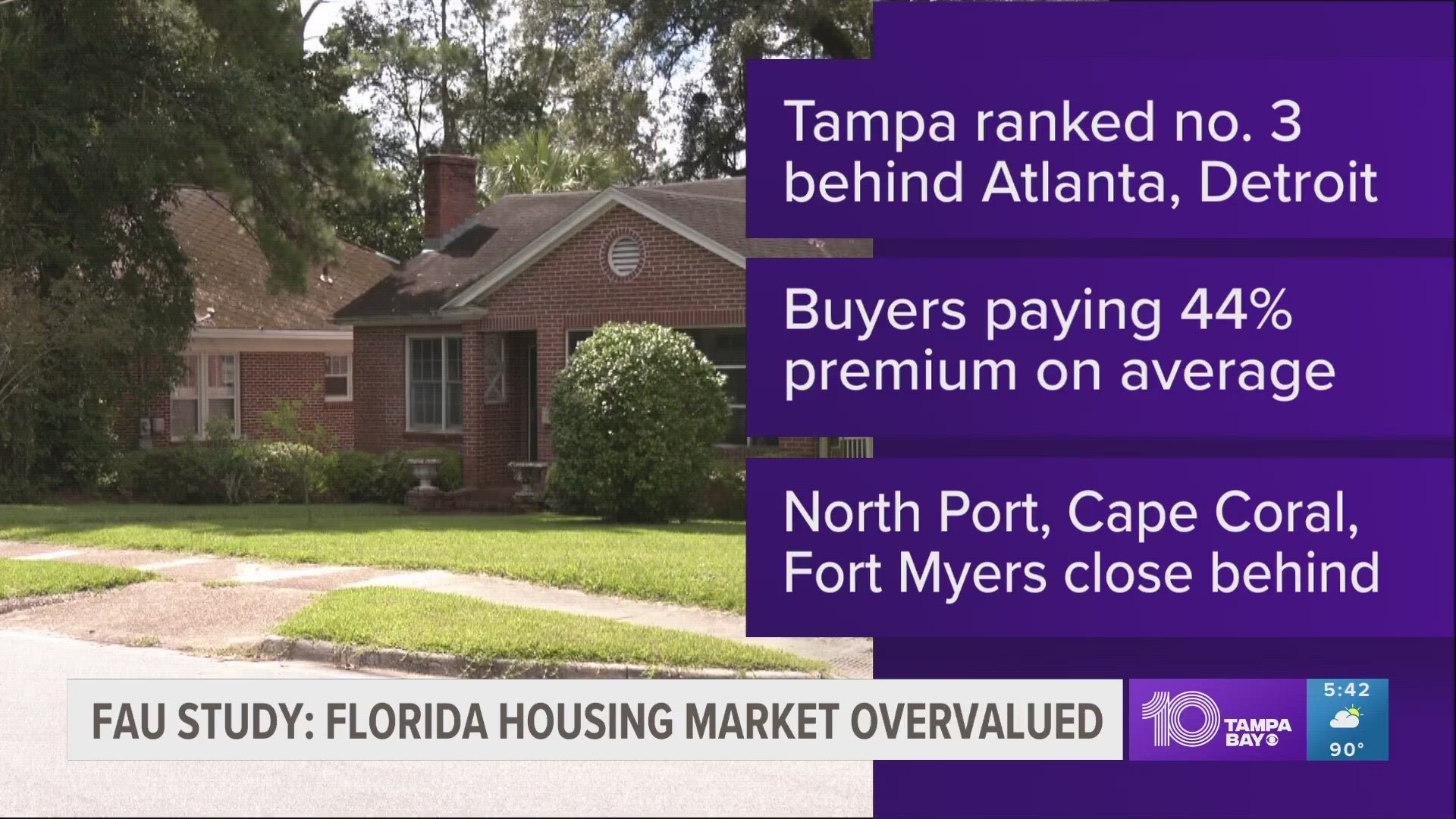LAKELAND, Fla. — Housing prices are still sky-high. Even if you're not in the market for a house right now, it's clear the costs are higher for houses than ever before, even with prices starting to come down.
Prices have increased to the point that some housing markets here in the Tampa Bay area are considered "significantly" overvalued, according to a late May report from Florida Atlantic University.
While we all want prices to go down, it's not great for any prospective home seller or the housing market if prices suddenly plummet. It might not be immediate, but two Tampa Bay-area metro areas are at a "very high" risk of having a home price decline over the next year.
The Lakeland-Winter Haven and North Port-Sarasota-Bradenton metro areas are both at a "very high" risk of home price decline, according to analysis from CoreLogic. In fact, they rank at No. 2 and 3 respectively in the Top 5 U.S. markets most at risk of an annual price decline.
Additionally, four out of the Top 5 metros are located here in Florida with Cape Coral-Fort Myers and Port St. Lucie rounding out the list. Only the Provo-Orem metro in Utah is considered more high risk of devaluing than the above Sunshine State metros.
CoreLogic says these five metro areas have a more than 70 percent chance of experiencing a price decline over the next 12 months. Time will tell how much housing market prices change.
Elsewhere in Florida, CoreLogic data comparing year-over-year home price changes in large U.S. metros back in May revealed Miami came out on top with the most change at 11.8 percent. Chicago saw the 2nd-highest change year-over-year at 3.8 percent.
Data from the FAU study shows that as of the end of April, Tampa homebuyers are paying an average of $367,956 for a home that typically would be expected to sell for only an average of $255,552. That's nearly a 44% premium — meaning prices are "above the area's long-term pricing trend that buyers must pay."
“Florida is so overvalued almost certainly because of the increased demand to live here combined with a shortage of available housing units,” said Ken H. Johnson, Ph.D., an economist in FAU’s College of Business. “There are just not enough roofs to go around, given our population and Florida’s stature as a prime destination.”

